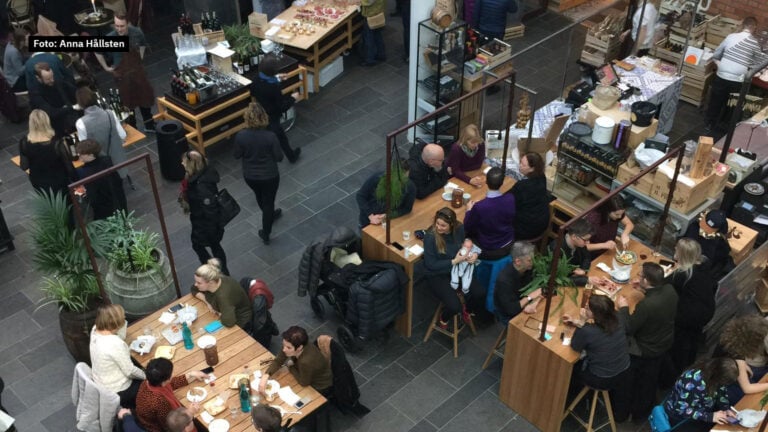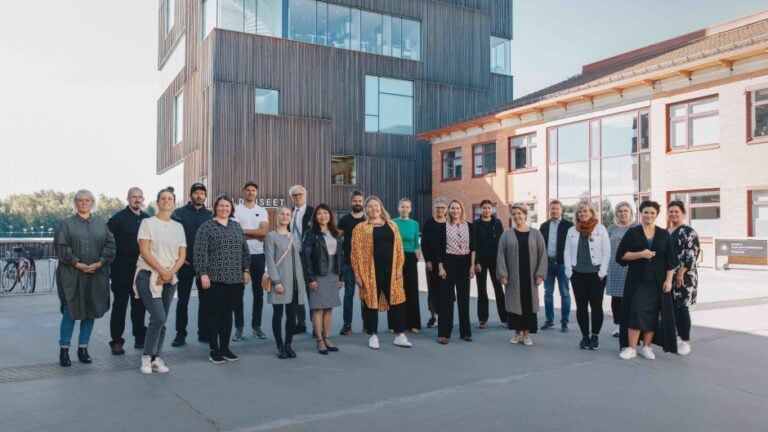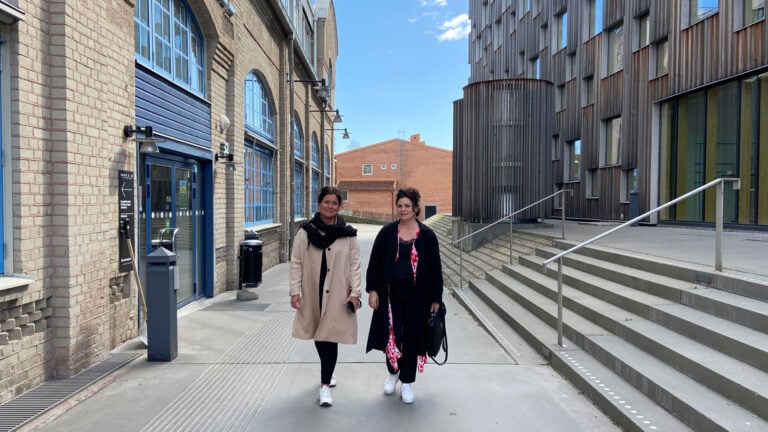Let's start with the most basic by answering the question of what logistics is. There is a plethora of different answers to this question. This is partly because logistics is an umbrella term for many different complex activities and processes, and partly because there is a plethora of definitions floating around. In this exercise, we will start from the definition used by SILF, the Swedish Purchasing and Logistics Association (active since 1956). SILF defines logistics as follows:
"Logistics is the planning, implementation, management and control of the efficiency of material flow and associated administrative flow, from material supply to delivery to customers, as well as return flow, in order to minimise costs and maximise customer service"
Based on this definition of logistics, we see that it encompasses everything from purchasing, ordering, optimisation and transport issues to warehousing and capital formation, value-adding processes such as unpacking, repacking, packaging and distribution to returns management and recycling. This means that the issue of logistics is of concern to the vast majority of enterprises.
The aim of the exercises below is to broaden the understanding of the different activities and processes involved in a company's logistics. The aim is also to increase your company's foresight and professionalism in working with your logistics. All in order to minimise your company's costs and maximise your customer service. Our experience of working in business development shows that there are companies and entrepreneurs who at first glance think that logistics "isn't for me - I don't sell or handle goods". Through this exercise, you will discover that there are few businesses that are not concerned and need to work on their skills and practices - one way or another.
Reflection questions: what are your challenges, goals and proposed solutions?
These questions can be worked on individually or in groups, or a combination of working on your own and brainstorming with others. When brainstorming is used, there is no right or wrong in the solutions proposed. It is about thinking big, small, wide and broad to find new perspectives. It is therefore important not to evaluate each other's ideas at too early a stage. If you are working together as a group, aim to create a situation where it is okay to think out loud, without prestige and freely.
Below is a first three-step exercise: it involves identifying challenges, goals and solutions to achieve them. The method is called the STP method (Situation, Target and Proposal) and is a general method that aims to identify challenges, targets and proposed solutions. The method is used in a wide range of industries.
Challenges (current situation): Draw on the examples above of issues included in logistics. Define the challenges you face.
- Perhaps you find that your goods are not delivered on time, that your products arrive damaged too often or that your transport contracts are too costly?
- Perhaps you have too complicated ordering procedures?
- Have you examined the possibility of renegotiating the payment terms?
- Have you reflected on where you keep your stock and how is it structured? Depending on the size of a company and the stage of development, it is not uncommon to have the warehouse at home. In the kitchen, bedroom or garage, for example. The question is, is it sustainable, efficient and reasonable?
- Finally, you may find that you don't give yourself time at all to work on issues related to your company's logistics. Then your first challenge should probably be to find ways to set aside time and take the issues seriously. Think about the definition above and what the aim is: "to minimise costs and maximise customer service". Can we afford not to devote time to such work? So, back to the first task: define the challenges you face.
Target (desired position): Your next step is to start from these challenges and, in relation to them, describe your objectives. This could be to make purchasing procedures simple and fast, to make freight rates more reasonable than they are today or to have a logically structured warehouse that meets your objectives.
Solutions: The third step is to find solutions.
- How will you create a well-functioning warehouse, in what ways do you see that you can simplify and improve your purchasing procedures and what arguments could you put forward in a renegotiation of transport contracts or payment terms?
The task is to formulate different solutions.
Reflection questions: when sales channels vary
Next are exercises to reflect on what it means to have both digital and analogue sales channels.
- If you have a traditional sales channel, such as in-store sales, and are planning to sell through digital channels as well, what does the change mean for your business from a logistics perspective?
- What challenges do you see?
- What opportunities can you identify?
- How can you handle these?
Sometimes the question may seem too difficult to answer (how can you deal with these). One way to tackle it is to ask yourself who in your neighbourhood, city, region has built sales in store and online and find out what their experience is of it. This question isn't just about seeking answers to the question, it's also about taking the step to expand your network so you can have conversations with others who are in a similar situation to you. Sharing experiences and knowledge with other businesses is often very instructive.
- Who could be important for you and your business?
Link tips:
- The Swedish Purchasing and Logistics Association: www.silf.se
- Council of supply chain management professionals: https://cscmp.org
- Facebook group for businesses where questions can be asked and answered by group members: search for the group "Swedish e-commerce" and request membership.






